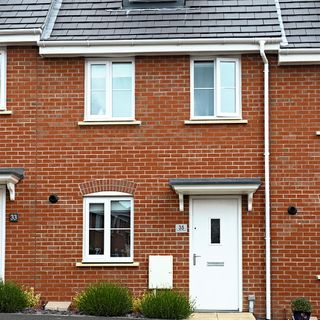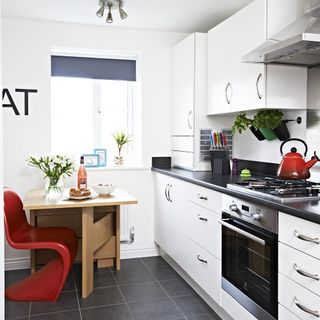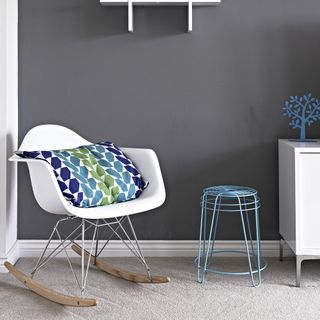First-time buyers using Help to Buy could be forking out more for a new home
Are you at risk of paying a Help to Buy premium?

New research has revealed that first-time buyers using the government-backed Help to Buy equity loan scheme are actually having to fork out more money when buying a home.
Related: Buying a house in a city? You can ask for a 20 per cent discount on the price for THIS reason
The Help to Buy equity loan scheme was brought in by the government as a way to help thousands of potential homeowners onto the property ladder. The scheme lends buyers up to 20 per cent – or 40 per cent if you live in London – of the price of a new-build home interest-free for five years.
Help to buy equity loan scheme
It seemed like a dream solution for many first-time buyers who'd been saving for a property, by lowering the mortgage. However, research by home-moving service reallymoving has revealed that the scheme has allowed developers to push up prices for buyers using the equity loan.

Reallymoving found that, on average, using the Help to Buy equity loan added an extra 10 per cent to property prices in the 12 months to September 2019.
Buyers in Yorkshire face the highest Help to Buy premiums of up to 21.6 per cent. Followed by the West Midlands, which faces 21.5 per cent premiums.
However, the problem doesn't end with the buying process. When it comes to selling, many Help to Buy homeowners can be left in negative equity or struggling to compete with new developments offering Help to Buy.
Get the Ideal Home Newsletter
Sign up to our newsletter for style and decor inspiration, house makeovers, project advice and more.

The equity loan scheme is currently open to any buyer who has enough for a five per cent deposit. However, from April 2021 it will be restricted to first-time buyers only and regional price caps will be introduced.
When speaking to The Sun, Rob Houghton from reallymoving pointed out that the developers are the ones 'reaping the benefits' of the scheme, not buyers.
'In many cases [first-time buyers] simply don't have the deposit required to explore other options, such as a buying a second-hand home, which may offer considerably better value,' he explains.

'It's important that those using the scheme consider their exit strategy, including whether or not they can afford the loan repayments on top of their mortgage when the interest-free period comes to an end,' he adds.
While the scheme has helped many aspiring homeowners take a step onto the property ladder, it isn't the only option out there anymore.
'There are more mortgages available now – such as 95 per cent mortgages – which means Help to Buy might not be so necessary for those struggling to get their deposit together,' says Paula Higgins from the Homeowner's Alliance.
Related: Phil Spencer says you should do THIS if you want to buy a house by 25
'It's important for first-time buyers to do their research before being ushered into a showroom. They could decide an older home might be more suitable as well as holding its value in the longer term,' she adds.
Be sure to do your homework before opting to use the Help to Buy scheme.

Rebecca Knight has been the Deputy Editor on the Ideal Home Website since 2022. She graduated with a Masters degree in magazine journalism from City, University of London in 2018, before starting her journalism career as a staff writer on women's weekly magazines. She fell into the world of homes and interiors after joining the Ideal Home website team in 2019 as a Digital Writer. In 2020 she moved into position of Homes News Editor working across Homes & Gardens, LivingEtc, Real Homes, Gardeningetc and Ideal Home covering everything from the latest viral cleaning hack to the next big interior trend.
-
 What colours work with navy kitchens? These are the go-to colour combos you need to know about
What colours work with navy kitchens? These are the go-to colour combos you need to know aboutTry these designer-approved colour combos to create a navy kitchen you’ll never want to leave
By Alisha Solanki
-
 Tesco's designer-look modular sofa set is the star of its returning outdoor living range – and it's less than £300
Tesco's designer-look modular sofa set is the star of its returning outdoor living range – and it's less than £300It's a steal for small gardens
By Jullia Joson
-
 Is Habitat the new Zara Home? The affordable quiet luxury alternatives to snap up fast
Is Habitat the new Zara Home? The affordable quiet luxury alternatives to snap up fastHabitat is the new budget-friendly alternative for Zara Home – as lookalike quiet luxury homewares sell for less
By Sara Hesikova